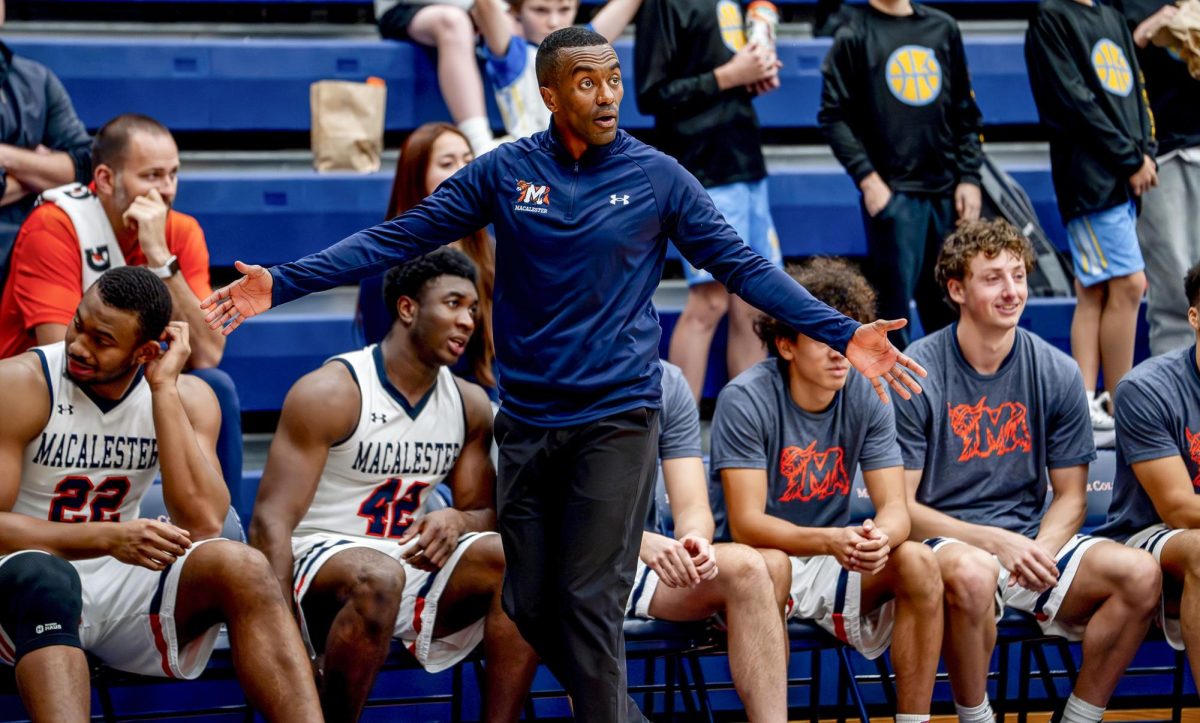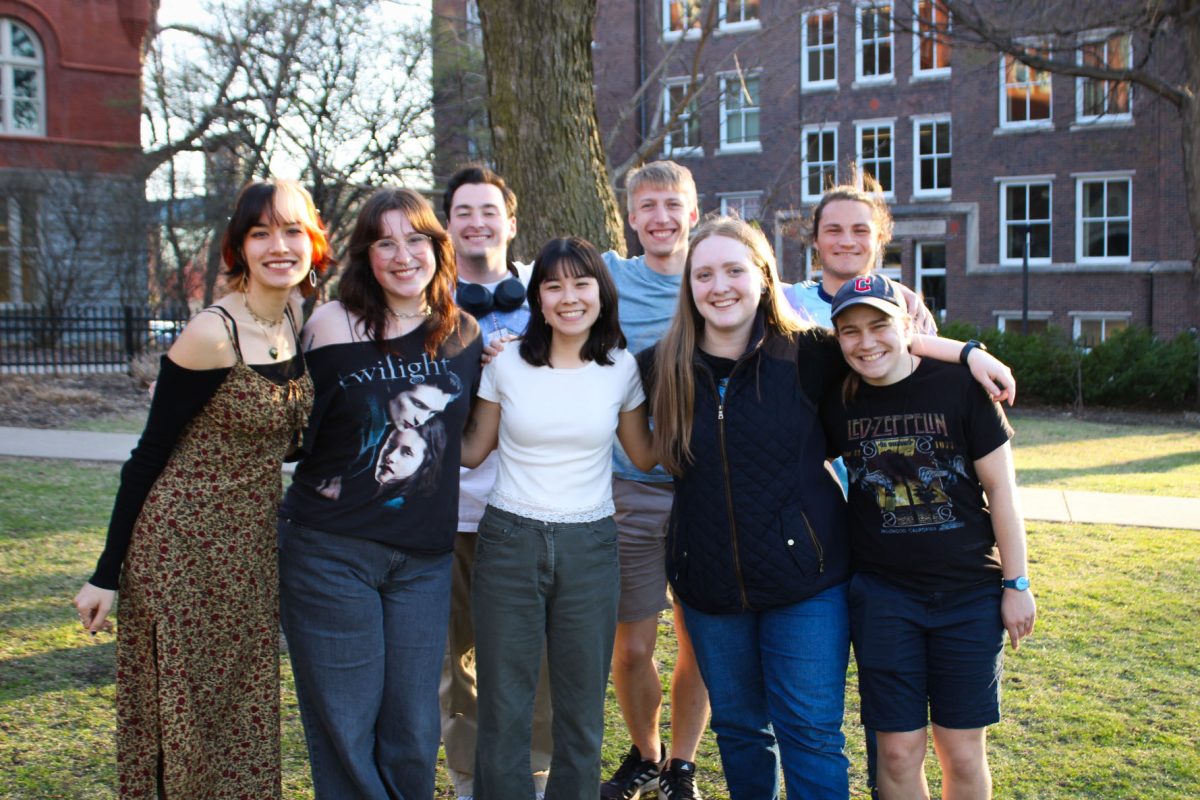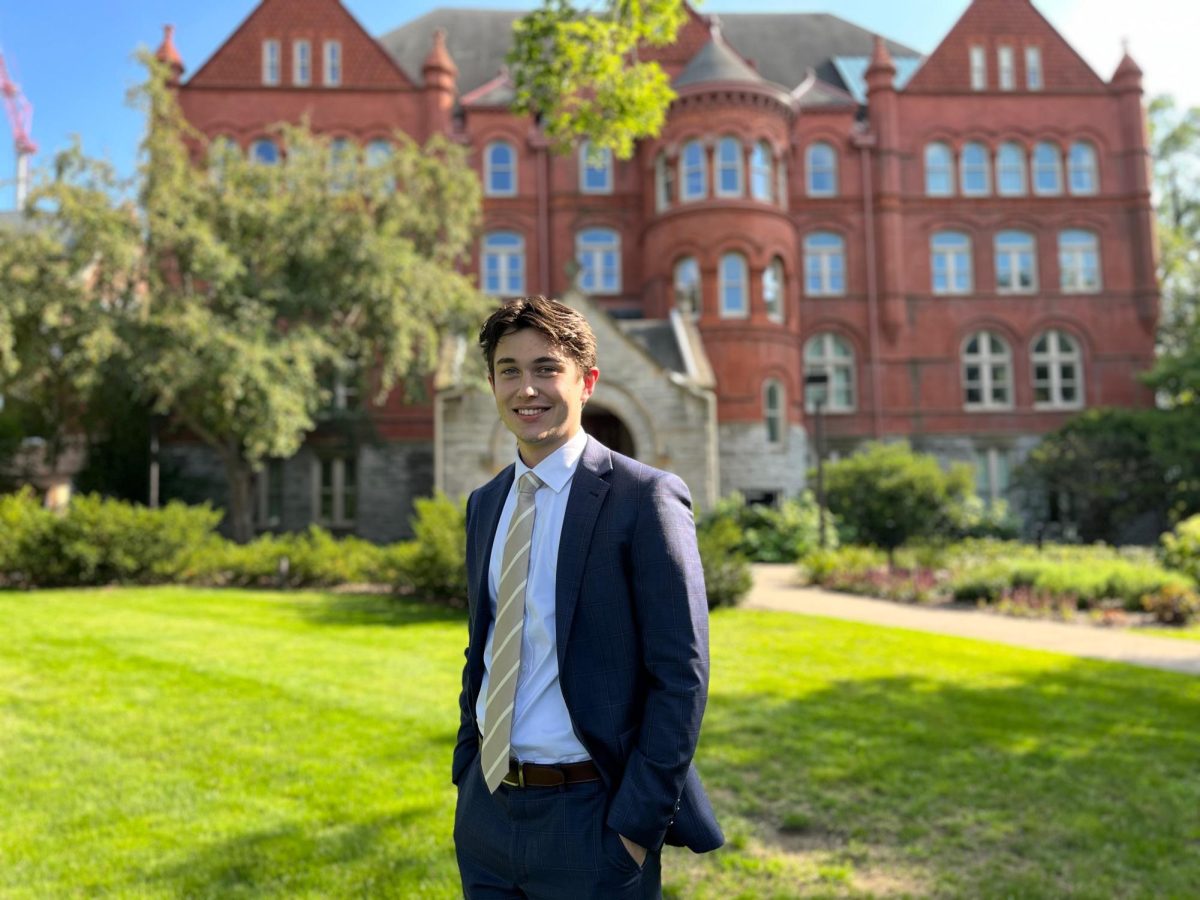Since the federal government declared an end to the COVID-19 public health emergency on May 11, 2023, COVID-related policies at Macalester, alongside the pandemic, have entered a new phase.
Across the U.S., JN.1, a new variant of COVID-19, is driving a surge in positive case numbers in the second biggest wave since the Omicron variant which emerged in November 2021. Though the symptoms of JN.1 infection are comparable to those of earlier variants, this new strain is highly transmissible — as of Jan. 20, it is estimated that the JN.1 variant is responsible for over 80% of positive cases in the country.
In Ramsey County, figures are looking better than the national average. Following the end of the COVID-19 public health emergency, the county switched from tracking the number of positive cases to the number of COVID-19 hospital admissions — as of Jan. 18, the hospital admission level is classified as low.
During the last few years, the Infectious Disease Task Force (IDTF) guided much of Macalester’s approach to COVID-19 guidelines. The cohort — comprised of faculty, staff and students across the college — met on a weekly basis to discuss campus policies regarding infectious diseases, including COVID-19, and how to mitigate their spread. Conversations during the IDTF’s meetings generated recommendations surrounding COVID-19 protocols which were then offered to senior leadership.
This year, the IDTF meets on an ad hoc basis, and committee leadership has recently transferred to Associate Vice President for Student Affairs and Dean of Students Javier Gutierrez and Director of Human Resources Deb Ekeren. Previously, the IDTF was led by the Hamre Center for Health and Wellness’ Executive Director Jen Jacobsen and Medical Director Steph Walters.
Gutierrez, whose role centers around effectively communicating information about COVID-19 practices and updates with the student body, explained the rationale behind the transition to as-needed IDTF meetings.
“We’ve changed how we meet because the status of COVID has changed across the U.S.,” Gutierrez said. “The ad hoc basis is ‘is there something that comes from the Minnesota Department of Health that says … that you need to call everyone together on an urgent basis to make some decisions? … Otherwise, handle COVID-19 as you would any other infectious diseases or other viruses like the flu or the cold.’”
This shift in federal response to the pandemic has also contributed to adjustments to COVID-19 practices across campus over the course of the past year. Among these changes is the discontinuation of free COVID vaccinations and test kits at the Hamre Center for Health and Wellness due to lack of federal funding.
“There are changes across a lot of campuses with the end of financial resources to campuses,” Gutierrez said. “Campuses were given a lot of funds, and [the focus is] how we can provide things to students for free now that they’re at a cost to us — helping direct students, or [asking] how we can make sure that [they’re] getting the resources [they] can, for free, through the government or through [their] own insurance or clinics.”
Andrew Snider ’24 — a health promotion assistant at the Hamre Center for Health and Wellness, who served in a student representative position on the IDTF during the 2022-23 academic year — expressed a similar sentiment.
“I think for a while we were doing an excellent job … in terms of having [isolation] housing for those who tested positive and being able to provide tests for free, on demand, basically unlimited [in number] — I think those were all really supportive,” Snider said. “And then, as that fell away as [case numbers] and mortality rates ebbed and flowed, … it was a disappointing thing to witness. But I think there’s also a lot that goes into these decisions.”
Students may have also noticed that, in contrast to the first few years of the pandemic, masking has become optional in most spaces across campus. However, Snider emphasized the continued importance of asking about people’s personal comfort levels with respect to wearing masks.
“What I would like to see more are practices of everyday consent as they relate to masking,” Snider said. “If you see somebody wearing a mask, maybe just have one on you and consider asking if they feel comfortable with you not wearing one or if they’d like you to wear one. I think that’s a really good way to be considerate.”
Gutierrez added that a large part of cultivating and maintaining a healthy community is rooted in respect for fellow community members and their choices regarding masking, staying home when feeling sick and other COVID-19 protection practices.
“Being in a healthy and responsible community is, if you see others with a mask, making sure you treat people with respect and not making fun or teasing others for doing that,” Gutierrez said. “It’s those kinds of things, of normalizing, and helping support others that make certain decisions in their life in that way.”
The Hamre Center for Health and Wellness continues to require the use of face masks, and faculty may choose to enforce a mask requirement for students in the classroom.
As the pandemic continues to unfold, the college will continue to look to experts’ advice in informing and reshaping best practices in response to COVID-19. And, as Gutierrez notes, an essential part of that is a willingness to be flexible.
“COVID-19 is something that we’re still having to learn to live with,” Gutierrez said. “Its real impact is not going to actually be known for a few years out because we’re still seeing its effects, and so we’re always trying to make sure that we act in the best way that we can … Even though we have a lot of knowledge and there is some research out there, we’re also still learning things.”
COVID-19 test kits can be purchased at the Hamre Center for Health and Wellness or ordered for free through the Minnesota Department of Health, with those living in the state eligible to order four rapid at-home COVID-19 tests each calendar month.













